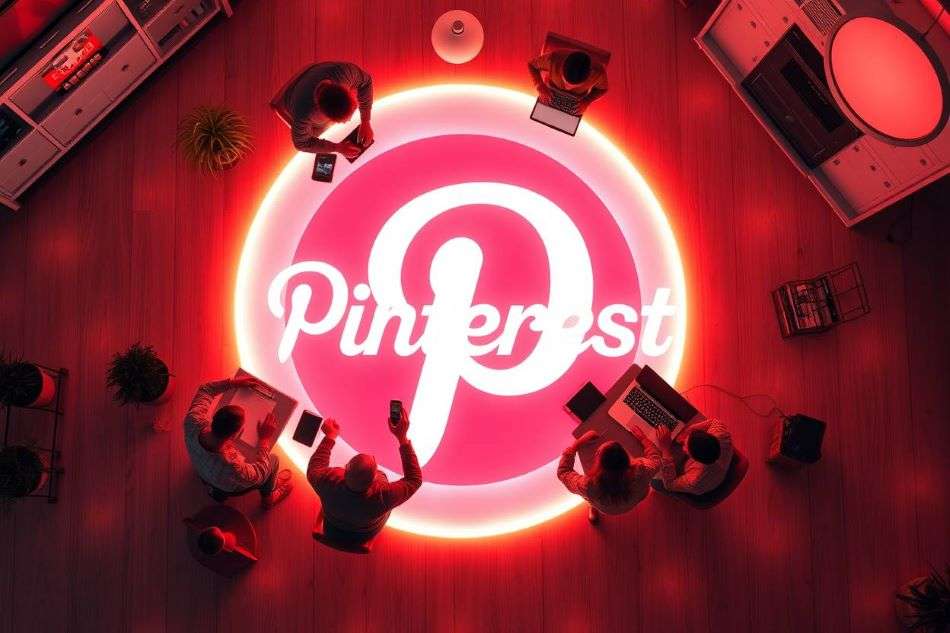AI Email Marketing – Benefits, Challenges and Top AI Tools
AI email marketing is a powerful resource for businesses looking to increase their engagement rates and ROI through Email Marketing Campaigns.
AI powered Email Marketing is improving companies productivity and bottom lines
In today’s digital world, AI email marketing is a powerful tool for businesses to engage with their customers. However, with the growing number of emails that individuals receive on a daily basis, it has become increasingly difficult for businesses to capture the attention of their target audience. This is where artificial intelligence (AI) comes into play. AI-powered email marketing has the potential to revolutionize the way businesses interact with their customers, providing personalized and relevant content that drives engagement and conversion rates. In this article, we will explore the key benefits of AI in email marketing and how it can be implemented to improve the effectiveness of email campaigns.
“The key to unlocking the potential of AI in email marketing is to focus on providing value to your customers. Use AI to understand their behavior, preferences, and needs, and deliver personalized content that truly resonates with them.”
The Benefits of AI in Email Marketing
Personalization
Personalization is a key benefit of using AI in email marketing. With AI-powered tools, businesses can collect and analyze data about their customers’ behavior and preferences, allowing them to deliver more relevant and personalized content. By tailoring content to each individual’s interests and needs, businesses can increase engagement and build stronger relationships with their customers.
Key points:
- AI can analyze customer data to create more personalized content.
- Personalization can improve engagement and customer relationships.
Segmentation
Segmentation is another key benefit of using AI in email marketing. AI can be used to segment customers based on their behavior, preferences, and demographics, allowing businesses to deliver more targeted content. By sending the right content to the right people at the right time, businesses can improve engagement and conversion rates.
Key points:
- AI can segment customers based on behavior, preferences, and demographics.
- Segmentation can improve engagement and conversion rates.
Optimization
AI can also be used to optimize email campaigns by analyzing data about open rates, click-through rates, and other metrics, AI can help businesses identify what is working and what is not. This allows businesses to make data-driven decisions and improve the effectiveness of their email campaigns.
Key points:
- AI can analyze data to identify what is working and what is not.
- Optimization can improve the effectiveness of email campaigns.
Automation
AI can automate many aspects of email marketing, from creating and sending emails to analyzing results. This allows businesses to save time and resources, while still delivering personalized and effective content to their customers.
Key points:
- AI can automate many aspects of email marketing.
- Automation can save time and resources while still delivering personalized content.
Predictive Analytics
Finally, AI can be used for predictive analytics in email marketing. By analyzing customer data, AI can predict which customers are most likely to engage with certain types of content, which emails are most likely to be opened, and which customers are most likely to convert. This allows businesses to target their email campaigns more effectively and improve their conversion rates.
Key points:
- AI can use predictive analytics to target email campaigns more effectively.
- Predictive analytics can improve conversion rates.
AI can help in personalization in the following ways:
- Predictive Personalization: By analyzing customer data, AI can predict the type of content that a customer is most likely to engage with and provide recommendations for similar products or services.
- Dynamic Content: AI can help in creating dynamic content for emails that is unique to each customer based on their preferences and behavior.
- Behavioral Targeting: AI can analyze customer behavior and use that information to send targeted emails with personalized product recommendations or promotions.
By providing a personalized experience to the customer, the chances of them engaging with the email and taking the desired action, such as making a purchase, are significantly higher.
Email Design and Optimization
AI can also assist in optimizing email design and improving email engagement rates. With the help of AI, marketers can analyze customer behavior and preferences to design email templates that are most likely to engage customers. AI can also help in optimizing email send times and subject lines to improve open rates and click-through rates.
AI can also help in email design by:
- Providing real-time design feedback to improve email design and layout
- Creating personalized images and videos for each customer
- Testing different versions of the email to determine the most effective design and content
By optimizing email design and sending times, marketers can improve email engagement rates, which can lead to increased sales and revenue.
Most importantly, always keep the human touch in mind. AI should augment and enhance our abilities, not replace them. Use AI to empower your team to create more meaningful connections with your customers and drive real business results.

Challenges of AI in Email Marketing
While the benefits of using AI in email marketing are significant, there are also some challenges that need to be considered.
Data Quality and Privacy
AI relies heavily on data, and the accuracy and quality of the data can significantly impact the performance of AI algorithms. Therefore, it is crucial to ensure that the data used for AI in email marketing is accurate, relevant, and up-to-date.
In addition, privacy concerns must also be taken into account. Customers may be hesitant to share their personal data, and companies must ensure that they are transparent about how customer data is being used and protect it from potential security breaches.
Implementation and Integration
Implementing AI in email marketing can be a complex process, and companies may face challenges in integrating AI with their existing email marketing systems. Companies need to ensure that their email marketing systems are compatible with AI and that the necessary resources and expertise are available to implement and manage AI.
Cost & ROI
AI technology can be expensive, and companies must consider the cost of implementing and managing AI in email marketing. Smaller businesses may find it difficult to justify the expense of implementing AI in their email marketing strategy.

Types of AI used in Email Marketing:
In email marketing, AI technologies are becoming increasingly sophisticated. The most commonly used AI technologies in email marketing are natural language processing (NLP), machine learning, and predictive analytics. NLP is used to understand the natural language used by subscribers in their emails and social media profiles, and then use that data to create personalized emails. Machine learning is used to identify patterns in the behavior of subscribers and use that information to send personalized emails.
Predictive analytics are used to analyze data about subscriber behavior, such as open rates, click-through rates, and conversion rates, to predict what types of emails will be most effective for each subscriber. Another type of AI used in email marketing is image recognition, which can help to identify images in emails and use that information to send targeted messages.
Don’t be afraid to experiment with new AI technologies and tools. Keep testing and iterating to find the right mix of automation and personalization that works best for your brand and your customers
Key points:
- Natural Language Processing (NLP) is used to create personalized emails
- Machine learning is used to identify patterns in subscriber behavior
- Predictive analytics are used to analyze data about subscriber behavior to predict effective emails
- Image recognition is used to identify images in emails and send targeted messages
Future of AI in Email Marketing:
The future of AI in email marketing is exciting, as there are many new technologies emerging that promise to make email marketing even more effective. One trend that is likely to continue is the use of machine learning algorithms to create more personalized email campaigns. This can be achieved by analyzing subscriber behavior, such as what products they are interested in, what type of content they engage with, and what time of day they open their emails.
Another trend is the integration of AI with other technologies, such as chatbots, to create a more seamless customer experience. Chatbots can be used to provide real-time customer support and answer questions, which can help to increase engagement and conversion rates. Additionally, there is a growing interest in the use of AI to create more engaging and interactive emails, such as emails that include videos or animated GIFs.
Stay up-to-date with the latest AI trends and best practices. Attend conferences, read industry blogs, and network with other marketing professionals to learn from their experiences and insights
Key points:
- Machine learning algorithms will be used to create more personalized email campaigns
- Integration of AI with chatbots will create a more seamless customer experience
- AI can be used to create more engaging and interactive emails

Best AI Tools for Email Marketing
Intuitive and easy-to-use interface
Offers advanced segmentation for precise targeting
Includes powerful email automation features
Provides detailed reports and analytics for campaign tracking and optimization
Limited customization options for signup forms
Pricing can be expensive for larger email lists
Some users report occasional glitches and slow loading times
- Email Marketing: Create and send targeted email campaigns with personalized content and dynamic product recommendations.
- SMS Marketing: Send personalized SMS messages to your subscribers to engage them and drive conversions.
- Push Notifications: Send targeted push notifications to your subscribers to drive engagement and sales.
- Facebook Messenger Marketing: Create and send automated messages on Facebook Messenger to engage customers and drive sales.
- Cart Recovery: Recover lost sales by automatically sending personalized messages to customers who abandon their shopping carts.
- Browse Abandonment: Remind customers of products they’ve viewed but not purchased with personalized messages.
- Product Recommendations: Use AI-powered recommendations to suggest personalized product recommendations based on each customer’s shopping behavior.
A large suite of Integrations with third party email marketing platforms and CRM's
Ease of use with an user friendly interface
Drag and drop Email creation and a library of templates
Email validation API
Email testing for dynamic templates
Email, SMS, WhatsApp and Video Marketing capabilities
Can be expensive for a large contact list
Customer service is limited for Basic plan
Teammate permission only for Advanced plan
- Customization: provides a variety of customizable email templates that can be used for different purposes.
- Drag-and-drop email design tools allow users to create custom email designs without requiring any coding skills.
- The email automation tools allow users to create custom automated email workflows based on triggers such as subscriber activity or specific dates.
- SMTP service allows developers to send email using their preferred programming language or email client.
- Email Validation API helps users reduce bounce rates by verifying email addresses before sending messages.
- Deliverability insights: Email analytics tools provide users with detailed deliverability metrics to help them optimize their email campaigns.
Conclusion – Is AI Email Marketing worth it?
AI technology is revolutionizing email marketing by equipping businesses with advanced tools to enhance their campaigns. With benefits like improved email engagement rates, increased personalization, and more efficient design and optimization, AI enables marketers to create impactful, data-driven strategies. Tools such as email validation API further support these efforts by ensuring data accuracy and deliverability, which are critical for successful AI-driven campaigns.
However, challenges remain, including data quality and privacy concerns, integration complexities, and the costs associated with implementing AI. Despite these hurdles, the field of AI in email marketing is rapidly advancing. Businesses that embrace AI-powered solutions can gain a significant competitive edge in their industry.
Despite these challenges, AI in email marketing is a rapidly growing field, and businesses that embrace this technology can gain a competitive advantage in their industry.
Learn more about how technology has changed the business landscapes in the age of Artificial intelligence and how you can stay ahead of the curve by using AI in Marketing, Social media and Automating your Marketing processes to save time and resources. Follow our blog for the latest AI Trends that surely will change the future as we see it today.
F.A.Q. – All your questions related to AI in Email Marketing
Q: What is AI in Email Marketing?
A: AI in Email Marketing refers to the use of artificial intelligence technologies such as natural language processing (NLP), machine learning, and predictive analytics to improve the effectiveness of email marketing campaigns.
Q: How can AI be used in Email Marketing?
A: AI can be used in Email Marketing in a variety of ways, such as analyzing subscriber data to personalize email content, predicting which types of emails will be most effective for each subscriber, and using chatbots to provide personalized customer service.
Q: What are the benefits of using AI in Email Marketing?
A: The benefits of using AI in Email Marketing include increased open and click-through rates, more personalized and relevant content for subscribers, improved customer engagement and loyalty, and cost savings through automation.
Q: Is AI in Email Marketing only for large businesses?
A: No, AI in Email Marketing can be used by businesses of all sizes. Many email marketing platforms now offer AI-powered features that are accessible to businesses of all sizes.
Q: How can businesses get started with AI in Email Marketing?
A: Businesses can get started with AI in Email Marketing by choosing an email marketing platform that offers AI-powered features, analyzing subscriber data to identify opportunities for personalization, and testing different AI-powered email campaigns to optimize results.
Q: Is AI in Email Marketing ethical?
A: Yes, AI in Email Marketing can be ethical if used responsibly and transparently. Businesses should be transparent about their use of AI in email marketing and ensure that they are using subscriber data in a responsible and privacy-conscious manner.
Q: Can AI completely replace human marketers in Email Marketing?
A: No, AI cannot completely replace human marketers in Email Marketing. While AI can help automate routine tasks and improve the effectiveness of email campaigns, human marketers are still needed to develop strategies, create content, and analyze results.





